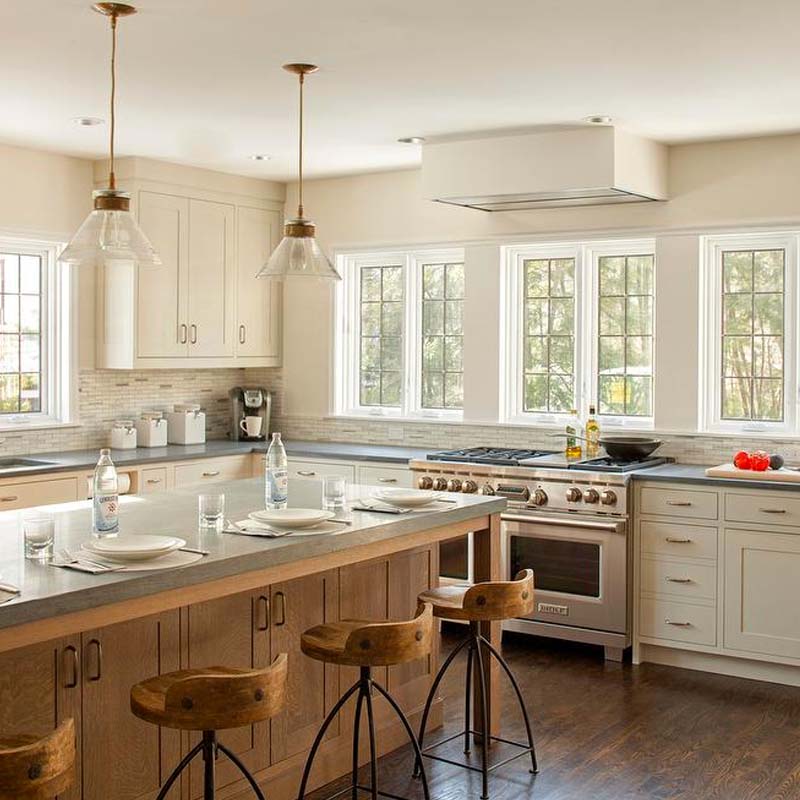Limestone Countertops
Limestone for kitchen countertops and bath vanity
Limestone is a sedimentary rock composed largely of calcite and aragonite minerals, which are different crystal forms of calcium carbonate. Limestone was formed in areas of the earth that once boasted reefs and is the result of aquatic shells sinking to the ocean’s floor and mixing with sand, silt, carbonate mud and calcite. The skeletal fragments of marine organisms visible on limestone countertops create a very unique surface. Because of its natural beauty, limestone has recently become one of the more popular choices for homeowners. It’s naturally muted and earthy tones allow it to blend seamlessly with your kitchen and baths. With proper care, limestone countertops can last many years.
Characteristics of limestone countertops
Colors and textures
Limestone is one of the most versatile natural stones, as it is always available in various sizes, textures and soft colors, giving a luxurious look and adding warmth to kitchens and baths. Limestone countertops are usually more affordable than granite and marble countertops, but will most likely not last as long.Durability
Limestone countertops are fragile. They will chip and crack under heavy use. Countertops corners are also vulnerable to breakage. Chips can usually be sanded out to help restore the surface appearance. Despite being more affordable than granite, the upkeep cost of limestone countertops is higher and they may need to be replaced in time, because of damages to the surface.
Scratch resistance
Limestone is not a hard natural stone like granite. Only the limestone quarried in France and Germany are as hard as granite. Consequently, limestone countertops will scratch more easily than other natural stone surfaces. Cutting boards should be use when using kitchen cutlery.

Heat resistance
Limestone surfaces can burn and scorch if hot pots are placed directly onto it. Special care is needed to prevent damages to the surface.
Porosity
Some varieties of Limestone are more porous than others. In general, limestone countertops are porous and vulnerable to stains. Water and soap spills need to be wiped right to prevent staining. Acid substances such as vinegar, lemon juice and ammonia will cause surface discoloration and etching. Grease and oily foods will also cause surface discoloration.
Maintenance
The porous nature of limestone countertops makes it somewhat easy to clean and remove stains. Only cleansers that are specified for limestone countertops should be used. Limestone countertops do require more maintenance than other natural stone surfaces. The regular use of a penetrating sealer to prevent damage is highly recommended.